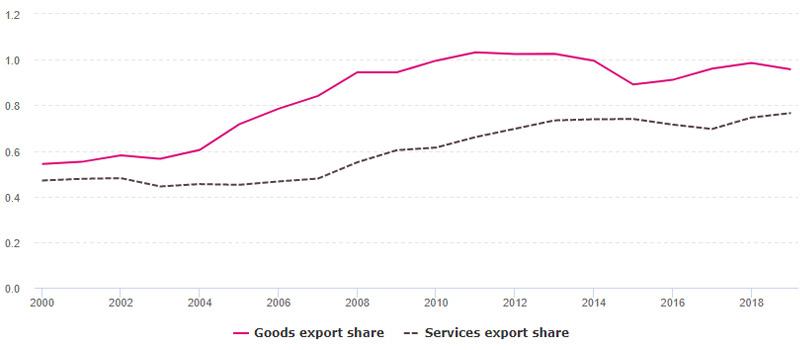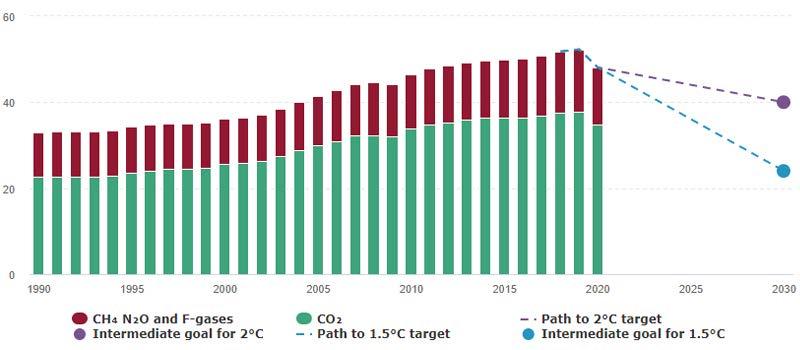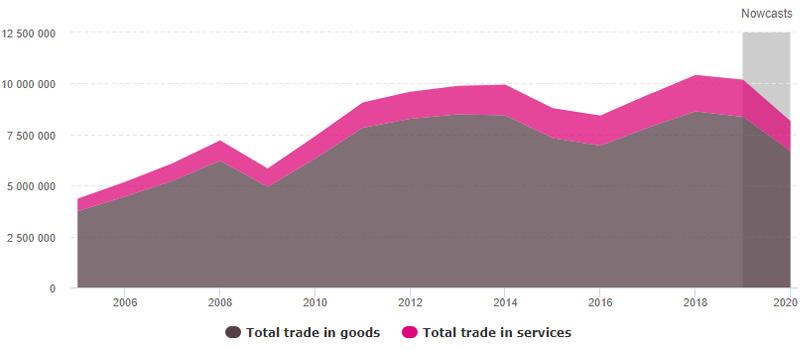
4 minute read
SDG Goals COVID-19 Stalls Progress on Global Goals
COVID-19 Stalls Progress on Global Goals
SDG Goals
Advertisement
The United Nations Conference on Trade and Development’s (UNCTAD) SDG Pulse – UNCTAD’s annual statistical publication reporting on developments relating to the 2030 Agenda for Sustainable Development and the Sustainable Development Goals (SDGs) – shows that progress on critical targets of the sustainable development goals has stalled amid the coronavirus crisis. The purpose of the report, published on 8 th July 2020, is to: • provide an update on the evolution of a selection of official SDG indicators and complementary data and statistics; • provide progress reports on the development of new concepts and methodologies for
UNCTAD custodian indicators; and • showcase, beyond the perspective of the formal SDG indicators, how UNCTAD is contributing to the implementation of the 2030 Agenda. Every year, the SDG Pulse highlights a specific aspect of the 2030 Agenda and discusses this issue from the slant or perspective of statistics. The 2020 edition discusses the economic, social and environmental impacts of COVID-19 and its implications for the continuation of statistical production. As UNCTAD warned, when it launched the 2020 edition of its SDG Pulse, the COVID-19 pandemic is pushing critical economic, social and environmental development targets out of reach. UNCTAD’s online annual update, tracking progress on a range of indicators of the UN’s Sustainable Development Goals, shows that poverty, inequality, the climate crisis, unsustainable production and other pressing challenges require even more urgent action due to COVID-19. The world only has 10 years left to achieve the goals of the UN’s 2030 Agenda for Sustainable Development, to which more than 150 world leaders committed in 2015. “Despite COVID-19, despite containment, despite everyone working from home, it was very important for us to publish the SDG Pulse on time,” said UNCTAD’s Head of Statistics and Information, Steve MacFeely. “The development challenges facing the world didn’t stop or go away, so it’s important that we continue to report progress towards the 2030 Agenda, and the important role that UNCTAD plays in that journey,” Mr MacFeely said.
Far-reaching impact of pandemic
This year’s bulletin is no ordinary update, as the effects of COVID-19 are evident throughout the report. The impact is evident in the trade of international goods, for which UNCTAD now forecasts a decline of almost 27 per cent for the second quarter of 2020, compared with the same quarter last year. The organisation also forecasts a fall of 20 per cent in merchandise trade for the whole year. For instance, SDG target 17.11 aims to significantly increase the exports of developing countries, and in particular to double the share of least developed countries (LDCs) in global exports by 2020. Although LDCs had been achieving modest growth in market share, COVID-19 has likely pushed the target beyond reach. Another shocking result featured in this year’s update is that the coronavirus-induced recordbreaking fall of 5 per cent in carbon dioxide emissions – compared with the same period in 2019 – will not be enough to achieve even the weakest of the targets set out by the Paris Agreement on climate change.
The share of global exports of goods and services by least developed countries. Source: UNCTAD’s SDG Pulse


Greenhouse gas emissions and target reductions (Gt of CO 2 e). Source: SDG Pulse
Global emissions must be cut by almost 8 per cent every year for the next decade to keep the world within reach of the 1.5°C target of the climate agreement. The magnitude of that task has been laid bare by COVID-19.
COVID-19 from a statistical point of view
This year’s In Focus section of the update looks at COVID-19 from a statistical perspective, examining the measurement challenges associated with the pandemic itself, the different policy actions adopted by governments and the impact on employment by gender. “While we discuss the impacts of COVID-19 throughout the report, we also explore the measurement issues and the implications for statistics itself,” Mr MacFeely said.

Trends of goods and services trade in developing economies. Source: SDG Pulse
The update also highlights the impacts on global statistics more generally, discussing how official statistics have had to adapt very quickly. “This report will every year, highlight a thematic issue of immediate relevance. This year’s theme addresses the many impacts of COVID-19 from a statistical perspective. In particular, the conceptual and organisational challenges being faced by national statistical offices around the world, and some of the implications for global official statistics. The report also discusses some of the measurement challenges in producing new, comparable COVID-19 statistics in the midst of a crisis,” Mr MacFeely said. * * * UNCTAD’s SDG Pulse: https://sdgpulse.unctad.org/




